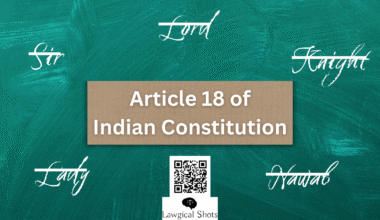The Special Marriage Act, 1954, outlines several grounds for divorce, including adultery, desertion, cruelty, and incurable unsoundness of mind. Divorce can also be granted on grounds of imprisonment, venereal disease, or if one spouse has not been heard from for a specified period. Additionally, divorce can be obtained by mutual consent after a period of separation. Here, the grounds of divorce under Special Marriage Act have been discussed in detail.
Introduction to the Act
The Special Marriage Act, 1954 is organized into eight main chapters, each serving a specific function:
- Chapter I covers preliminary matters, including definitions and the act’s scope. This chapter establishes what constitutes a “Special Marriage” and defines key terms used throughout the legislation.
- Chapter II covers Solemnization of Special Marriages.
- Chapter III states the Registration of Marriages Celebrated in Other Forms.
- Chapter IV covers the Consequences of Marriage Under this Act.
- Chapter V gives the information about Restitution of Conjugal Rights and Judicial Separation.
- Chapter VI states the Nullity of Marriage and Divorce.
- Chapter VII covers Jurisdiction And Procedure.
- Chapter VIII states the Miscellaneous which includes Penalty on married person marrying again under this Act, Punishment of bigamy, etc.
Therefore, these are the eight main chapters which define the main sections and facts of the Ground of Divorce under Special Marriage Act, 1964.
Grounds of Divorce under Special Marriage Act, 1954
- Adultery
In its legal and societal context, adultery refers to consensual sexual intercourse between a married person and someone who is not their spouse. While previously a criminal offense in India, the Supreme Court decriminalized it in 2018, though it remains a relevant factor in civil matters like divorce. Infidelity, on the other hand, encompasses a broader range of non-monogamous romantic or sexual relationships, making adultery a subset of infidelity.
Example: If a spouse has sexual intercourse with someone other than their spouse after the marriage, it can be grounds for divorce.
- Desertion
When one spouse abandons the other, with the intention of permanently ending the marital relationship, without a reasonable cause and without the other spouse’s consent, it is desertion. It’s a specific ground for divorce in many legal systems, including India.
Example: If one spouse deserts the other for a continuous period of at least two years, the deserted spouse can file for divorce.
- Cruelty
Cruelty is defined as conduct that causes such mental suffering or physical pain that it endangers the life, limb, or health of the petitioner or makes it impossible for the petitioner to carry on living with the respondent.
Example: If a spouse has been treated with cruelty by the other, it can be a ground for divorce. This includes both physical and mental cruelty.
- Prolonged Imprisonment
Imprisonment or incarceration is the restraint of a person’s liberty for any cause whatsoever, whether by authority of the government, or by a person acting without such authority. If a spouse is undergoing imprisonment for seven years or more, the other spouse can file for divorce.
- Incurable Unsoundness of Mind
It refers to a mental state of such severity and permanence that it prevents a person from understanding the nature of marriage or fulfilling its responsibilities, making them unfit for the marital relationship. It’s not merely about a temporary mental lapse, but a continuous and profound incapacity.
Example: If a spouse is incurably of unsound mind or suffering from a mental disorder of such a kind that the other spouse cannot reasonably be expected to live with them, divorce can be sought.
Grounds for Divorce under SMA (available only to wife)
The wife can seek divorce on any of the following grounds:
- If the Husband has committed an offence relating to rape, sodomy or bestiality. A decree of divorce shall, however, be granted only when the husband’s guilt is proved before the court of law and he’s convicted for committing such an offence.
- If cohabitation has not resumed even after one year of passing of the decree of maintenance in favor of the wife.
Grounds for Divorce by Mutual Consent:
Both the parties to marriage may jointly present a petition for divorce before the District Court on the grounds as follows:
- They have been living separately for a minimum period of one year
- They have not been able to live together.
- They have mutually decided that their marriage should be dissolved.
Conclusion
Apart from the Guardians and Wards Act, the Special Marriage Act of 1954 is India’s only secular personal legislation. This Act intends to provide consistent marriage legislation across all boards and does not make any distinctions between citizens when it comes to the “holy union” of two persons. In the end, divorce is never easy and often comes with emotional challenges for everyone involved. However, it’s important to remember that healing and growth are possible. With support, understanding, and patience, families can overcome the difficulties of divorce and move toward a brighter future.
The grounds for divorce under Special Marriage Act have been decoded by our intern, Mr. Rushikesh Sawant. He has been assisting the team in bringing informational legal blogs.








